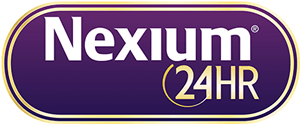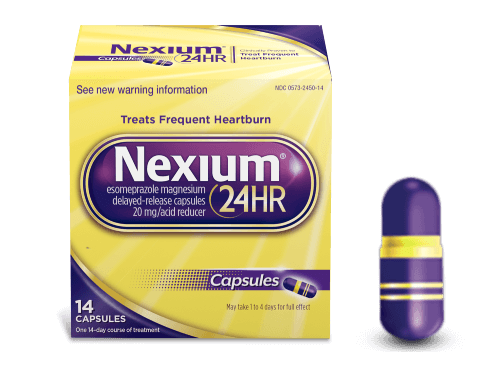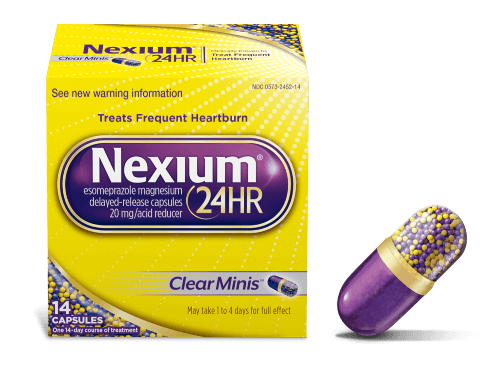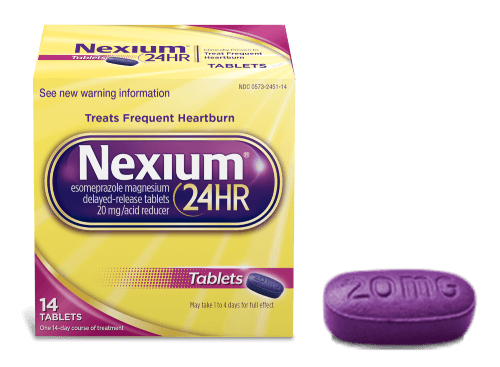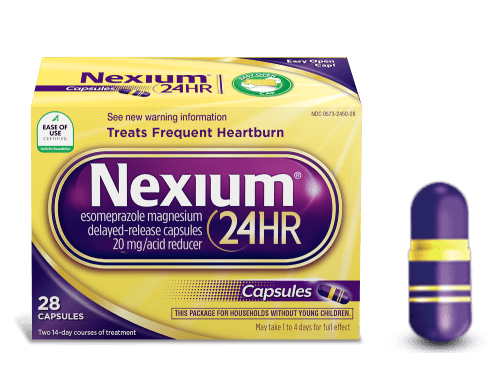If you’ve never heard of silent reflux, also known as laryngopharyngeal reflux (LPR), you’re not alone. Learn about this condition, what causes it, how it can be treated, and how it differs from gastroesophageal reflux disease (GERD).
What is LPR?
Laryngopharyngeal reflux occurs when stomach acid travels up the esophagus and spills into the throat or voice box.1 This condition takes its name from the fact that the voice box is also known as the larynx.1
What Causes Silent Reflux?
When you eat, food travels from your mouth to your stomach by way of your esophagus. Where it connects to the stomach, the esophagus has a ring of muscle that effectively closes off access and normally prevents the contents of the stomach from leaving back up the esophagus.2 In someone who has GERD, stomach acids repeatedly flow back up from the stomach to the bottom of the esophagus.1 For people who suffer from acid reflux and LPR, stomach acid can travel from the stomach to the esophagus and larynx.2
Physical causes and triggers of silent reflux can include pregnancy, a hiatal hernia, or abnormal esophageal spasms.2 Diets that feature lots of overly spicy or fatty foods are commonly associated with reflux conditions.2 As well, if you frequently lie down right after a meal or smoke tobacco products, you may increase your chances of getting reflux.2
What Are the Symptoms of LPR?
While laryngopharyngeal reflux does involve stomach acid entering the esophagus, its symptoms aren’t the same as GERD.
LPR is called silent reflux because there is a distinct lack of chest-burning symptoms.2 Instead, individuals may notice these symptoms:1,2
- Asthma
- Excessive throat clearing
- Difficulty swallowing
- Chronic cough
- Postnasal drip
- Burning sensation in the throat
- Hoarseness or change in voice
- Belching
- Sore throat or feeling like there’s a lump in your throat
- Choking episodes, especially while asleep
If you think you might be experiencing silent reflux, talk to your healthcare provider. They may refer you to an ear, nose, and throat specialist for evaluation. Full diagnosis may require an endoscopy—a tube with a camera that’s inserted down your esophagus through your nose—x-ray exams, or tests to check the acidity of your stomach and how the muscles of your esophagus contract.
How Do You Treat Silent Reflux?
LPR treatment is typically based on the symptoms you’re experiencing. If you do have LPR, this specialist will be able to assess any damage to your larynx and help you determine the best course of action.
Most at-home treatments for LPR involves dietary and lifestyle modifications. You may need to cut out certain foods, take up exercise, and stop smoking or drinking alcohol.1 Other common suggestions include elevating your head and shoulders during sleep and stopping eating at least two hours before your bedtime.2
How to Treat Heartburn with Over-the-Counter Medications
Over-the-counter medications, like antacids can be taken for heartburn-related symptoms. If you have frequent heartburn (heartburn occurring two or more days a week), proton pump inhibitors like Nexium 24HR can provide 24 hour relief from your symptoms.3 Proton pump inhibitors work to reduce your body’s production of acid and can help with heartburn that is not resolved by antacids.3 Nexium 24HR targets every source of acid production to prevent acid before it starts, which helps with frequent heartburn.
Any form of reflux can be uncomfortable, but silent reflux isn’t as well-known so it may not be treated as immediately. However, understanding how LPR can affect you can allow you to get the treatment you need.
- GERD and LPR. ENT Health. https://www.enthealth.org/conditions/gerd-and-lpr/. Accessed 4/4/2023.
- Silent Reflux. UTSouthwestern Medical Center. https://utswmed.org/conditions-treatments/silent-reflux/. Accessed 4/4/2023.
- Antacids and Acid Reducers: OTC Relief for Heartburn and Acid Reflux. American Academy of Family Physicians. https://familydoctor.org/antacids-and-acid-reducers-otc-relief-for-heartburn-and-acid-reflux/. Accessed 6/7/2023.
